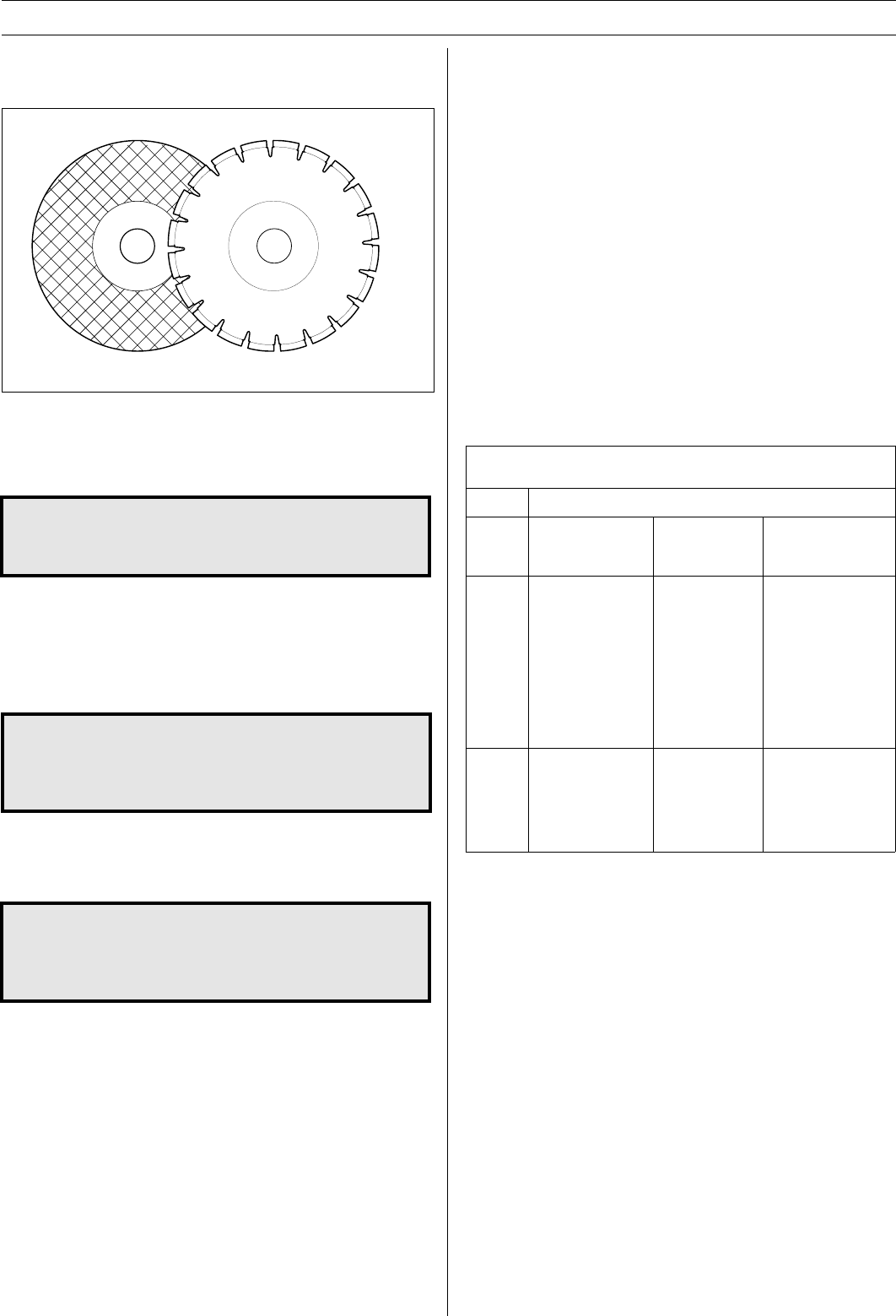
10 – English
SAFETY INSTRUCTIONS
CUTTING BLADES
Abrasive blades
The cutting material in an abrasive blade consists of abrasive
corn that is held together by an organic bonding agent.
”Reinforced blades” are made up of a fabric or fibre base that
prevents total breakage at maximum working speed if the blade
should be cracked or damaged. (The term reinforced does not
refer to those cutting blades that are only reinforced around the
flange).
A cutting blade’s performance is determined by the type and
size of abrasive corn, and the type and hardness of the bonding
agent.
Characteristics that give the blade a shorter service life and
greater cutting capacity are said to make the blade ”softer”. A
blade with a longer service life and slower cutting capacity is a
blade with a ”harder” effect.
High quality cutting blades are normally more economical.
Lower quality cutting blades usually have an inferior cutting
capacity and shorter service life, which results in higher cost per
processed material.
ABRASIVE BLADES TYPES AND USES
Use
Water cooling
Increases the
blade’s service
life. Reduces
dust formation.
Recommended.
Reduces cutting
capacity NOT
recommended.
General
characteristics
Universal
usage,
economical
Unbeatable for
steel (not
suitable for
concrete, etc.)
Material
Concrete,
asphalt,
stone,
brickwork,
cast iron,
aluminium,
copper,
brass, cables,
rubber, etc.
Steel, steel
alloys and
other hard
metals.
Blade
type
Con-
crete
Metal
General
Cutting blades are available in two standard designs; abrasive
blades and diamond blades.
!
WARNING!
A cutting blade may burst and cause injury
to the operator.
!
!
High speed portable tools
Cutting blades of the make Husqvarna are manufactured for
portable, high speed, power cutters. If other makes of cutting
blades are used, ensure the blades comply with all the
directives and requirements attributed to the specific type of
power cutter.
WARNING!
Never exceed the maximum working speed of
a cutting blade.
Special blades
Some cutting blades are designed for stationary equipment and
for use with attachments. These types of cutting blades must
not be used on portable, power cutters.
WARNING!
Never use a cutting blade for any other
purpose than that it was intended for.
Always contact local authorities and make sure you are
following applicable directives.


















